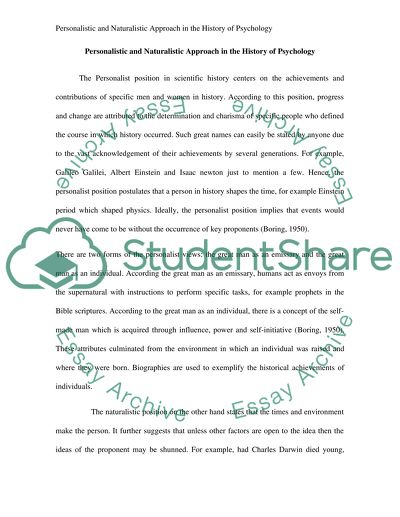Cite this document
(“Examine the Personalistic and Naturalistic Approach in the History of Coursework”, n.d.)
Examine the Personalistic and Naturalistic Approach in the History of Coursework. Retrieved from https://studentshare.org/psychology/1687658-examine-the-personalistic-and-naturalistic-approach-in-the-history-of-psychology
Examine the Personalistic and Naturalistic Approach in the History of Coursework. Retrieved from https://studentshare.org/psychology/1687658-examine-the-personalistic-and-naturalistic-approach-in-the-history-of-psychology
(Examine the Personalistic and Naturalistic Approach in the History of Coursework)
Examine the Personalistic and Naturalistic Approach in the History of Coursework. https://studentshare.org/psychology/1687658-examine-the-personalistic-and-naturalistic-approach-in-the-history-of-psychology.
Examine the Personalistic and Naturalistic Approach in the History of Coursework. https://studentshare.org/psychology/1687658-examine-the-personalistic-and-naturalistic-approach-in-the-history-of-psychology.
“Examine the Personalistic and Naturalistic Approach in the History of Coursework”, n.d. https://studentshare.org/psychology/1687658-examine-the-personalistic-and-naturalistic-approach-in-the-history-of-psychology.


